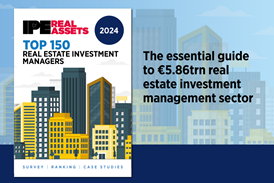The German residential specialist Süddeutsche Wohnen has bought over 600 residential units in total increasing its coverage of the German province of Baden-Württemberg.
One deal was a 500 units portfolio bought from Gagfah in various cities in the region. The other comprised 110 units in six multi-family homes from two cooperative societies.
The assets were built between 1930 and the 1990s and the purchase price was not disclosed.
Süddeutsche Wohnen is the former LBBW Immobilien which had been bought by a consortium of Versorgungswerke, Versicherungen and Pensionskassen led by Patrizia in 2012.
It is aiming to grow its portfolio by over 1,000 apartments per year through purchases – most of which are bought to be refurbished and held long-term.
According to analysts at Scope Ratings, residential real estate companies are investing larger sums into refurbishing existing portfolio than previously because it “offers better returns than buying new holdings”.
The research shows last year almost €19 per sqm were invested in maintenance and refurbishment of objects in existing portfolios, while in 2009 it had only been just over €15.
After this 22% increase, Scope Ratings expects a further rise to “just under €20 per sqm over the next two years”.
Contrary to the trend of declining yields in prime locations due to higher demand, the yields from investment in existing holdings went up from 3.7% to 5.3% in the five years to 2014 – this is “100bps above the average initial yields for portfolio acquisitions”.
Scope explains this climb in yields to the “rising share of spending on refurbishment as opposed to maintenance”. While in 2009 only one-third was spent on refurbishment, this share has increased to 45% five years later.
In Germany, housing owners can pass on up to 11% of the refurbishing costs but none of the maintenance costs to the tenants, therefore money spent on refurbishment is driving yield.
Scope added that “there are no caps on rent increases resulting from refurbishments“.
A further increase in refurbishments can be expected as assets which have been refurbished to a certain extent will be exempt from the rental freeze to be introduced in some German regions under new regulations.
Read more about residential investments in Germany and elsewhere in the May/June edition of IP Real Estate







